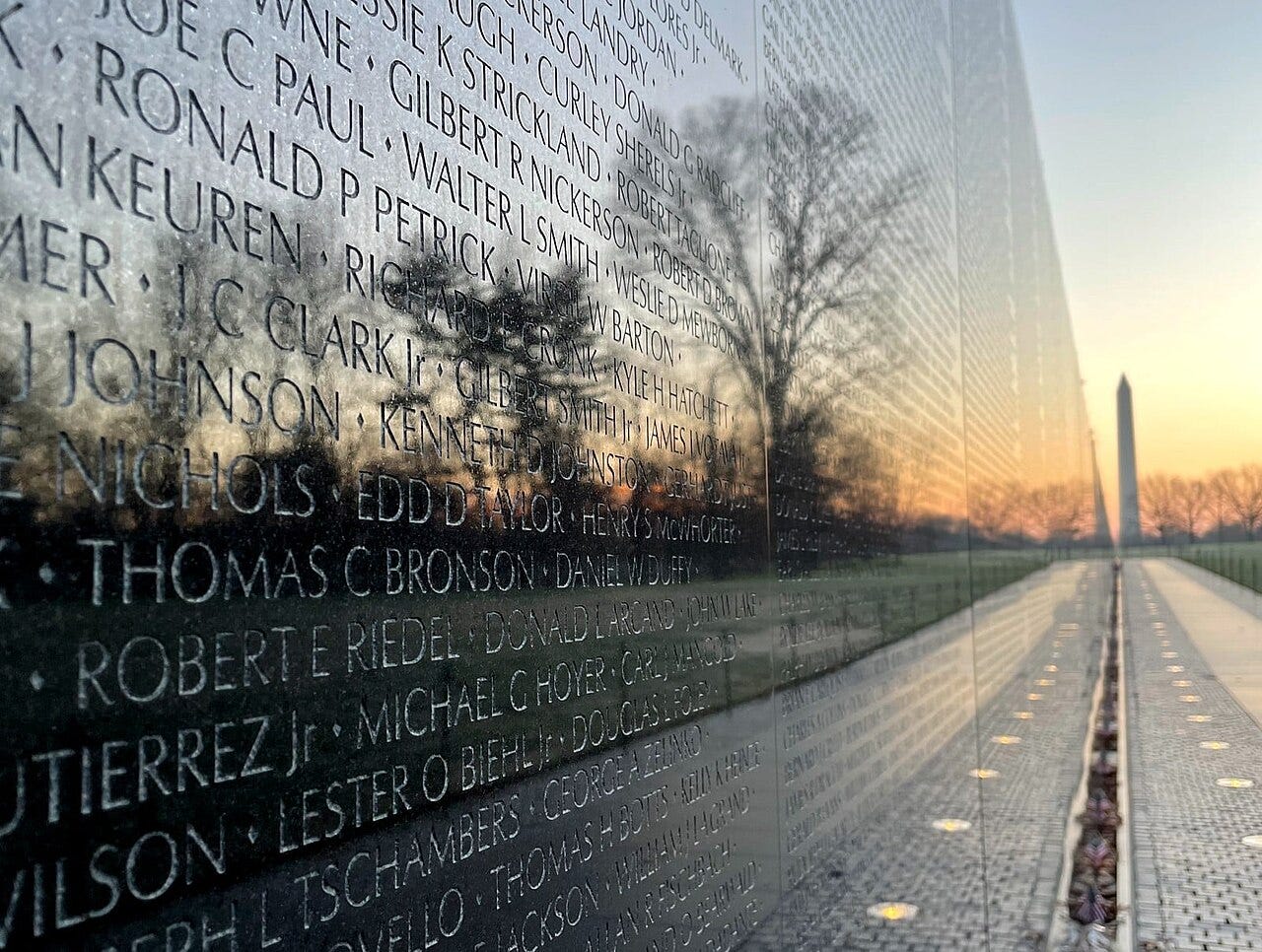How does a Vietnam Veteran Observe Memorial Day?
With patience, tears, the comfort of friends and his dog
Memorial Day is more than an opportunity to celebrate the approach of summer. Memorial Day is a time to honor and mourn military personnel who have died while serving in our armed forces. But for those who fought in wars and survived, Memorial Day is often a time for reflection of the physical and emotional travails resulting from having fought in a war.
A friend of mine, who fought in the Vietnam War, has related to me his painful experiences of serving in that war, its lasting consequences on his life and his anti-war protesting activities.
His story begins in 1965 when he was preparing to attend The Juilliard School to study piano, conducting and composing. But before leaving for New York, he was drafted into the army, spending 11 months in Vietnam before being injured. He explains, “I saw friends get torn apart and die, and I began reading material about reasons for waging the war, which were untrue. We also had liars running the government, who later apologized for directing the war.”
In Vietnam, my friend was unfortunately blown backwards into a tree by a mine, which was erroneously set off by a platoon sergeant who was killed by it. My friend endured severe spine injuries from that blast that he is still dealing with nearly 60 years later. He was released from the army months later, and diagnosed as 100 percent disabled with combat PTSD. He has also suffered from various effects from contact with Agent Orange, including diabetes, and has had multiple bouts of encephalitis due to a parasitic infection, among other physical and emotional problems.
Returning home, he spent eight additional months serving in the army, and then enrolled at a university near his Long Beach home where he studied Political Behavior to learn why our government “was so fucked up,” as he says. Unfortunately, by then, his Vietnam experience had destroyed his lifelong passion for music, which had been “blown out of him.”
He also became an ardent anti-war protestor. He and fellow demonstrators not only “shut Cal State Long Beach down with our protests,” he gave speeches about the war, often to large audiences, including the local Chambers of Commerce, City Councils and business organizations including the Lions and Optimists Clubs.
His powerful speeches were based on having lived through the Vietnam War, and his ability to convey through personal experiences the war’s stark immorality. And having been a performer of music since his childhood, he had developed a stage presence that captivated the numerous people he was addressing.
He explains that Vietnam provided veterans with direct knowledge of the violence and horrors of war, provoking many to protest fervently. Their passion also deeply affected those who saw and heard their stories, perhaps helping to end that war.
He adds, “Fifty-eight thousand Americans were killed in Vietnam and many others had serious injuries that affected them throughout their lifetimes. Virtually every veteran who served there has had a long list of ailments, including many that caused their early deaths.”
My friend later attended law school and the London School of Economics for a post-doc in international law. He practiced as a maritime lawyer, enabling him to travel all over the world, as his wartime experiences made support for his country’s government problematic, he asserts. He married a few times and had two kids.
He achieved great success, in part, as he often worked to exhaustion to keep the demons in his life—his PTSD—subdued. Yet when he began to slow down, his PTSD emerged into his psyche, resulting in his having numerous flashbacks of seeing body parts of soldiers who were blown to smithereens, among other visions.
He has sought counseling for his PTSD and a plethora of other emotional symptoms, much of that from the Veterans Administration, which unfortunately has been laying off many of its personnel.
Today, my friend continues to battle the demons that have haunted him since the Vietnam War. These often become fiercer on holidays such as Memorial Day. Yet he valiantly fights demons, as well as injustices whenever they cross his path, he says.
He will join the organization, United States Veterans Initiative—the largest nonprofit provider in our nation of comprehensive services to homeless and at-risk veterans—early in the morning, Sunday, May 25. He and many other veterans will participate in a five kilometer walk to help raise fund for the homeless veterans.
And when I join an “Indivisible” organization sponsored protest rally later in the day on May 25, honoring our country’s veterans, I will express gratitude for his and so many others’ service to our country.
View of names etched into the granite face of the Vietnam Veterans Memorial, Washington, D.C.




Very well said. I will share your thoughts with my friend.
Thank you for sharing such a powerful and honest story. I deeply respect your friend’s bravery in speaking out against the Vietnam War and his anti-war activism, which exposes the devastating human cost of imperialist wars.
Memorial Day should remind us not to glorify these wars or those who carry out imperialist violence. Instead, it must be a time to critically confront the lies, greed, and exploitation that drive such conflicts, and to stand against the systems that continue to send people to die for unjust causes.
True solidarity means fighting for a world where no one is sacrificed for empire or war profiteering.